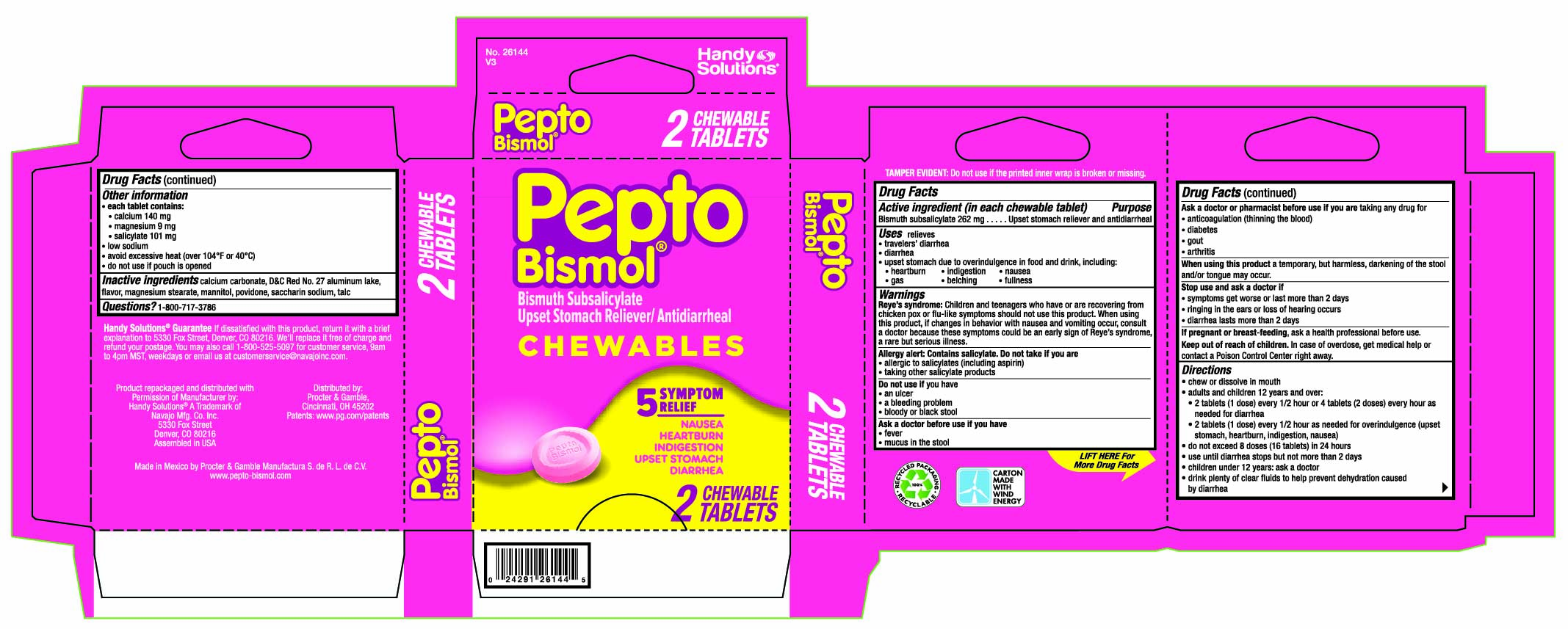
Pepto Bismol | Bismuth Subsalicylate Tablet, Chewable while Breastfeeding
What is Pepto Bismol | Bismuth Subsalicylate Tablet, Chewable used for?
Brief: Upset stomach reliever and antidiarrheal
Is Pepto Bismol | Bismuth Subsalicylate Tablet, Chewable safe to use while breastfeeding? Can it interfere with growth and development of my kid?

Pepto Bismol | Bismuth Subsalicylate Tablet, Chewable Breastfeeding Analsys
Bismuth subsalicylate while Breastfeeding
SafeBismuth salts are used alone or together with other components in preparations against gastritis and diarrhea.Bismuth salicylate contains about 60% bismuth and 40% salicylate. At latest update no published data on excretion into breast milk were found. Bismuth is not absorbed into the systemic circulation of the mother. There may be a risk of absorption of salicylate in the case of bismuth salicylate, although in small quantity (<1% of the maternal dose), but no cases of Reye's syndrome have been reported after taking bismuth salicylate or other non-acetylated salicylate compounds. Due to the otherwise minimum risk of Reye's syndrome and the indiscriminate use of bismuth subsalicylate for treatment of gastroenteritis cannot be justifiable since most of gastroenteritis do not require medication instead a simply adequate hydration, a safer alternative should be desirable while breastfeeding, like the other salts of bismuth (citrate, etc).
Pepto Bismol | Bismuth Subsalicylate Tablet, Chewable Breastfeeding Analsys - 2
Bismuth subsalicylate while Breastfeeding
CAS Number: 14882-18-9
Because of the possibility of absorption of salicylate from the breastmilk by the infant, alternatives are preferred.[1]
What should I do if already breastfed my kid after using Pepto Bismol | Bismuth Subsalicylate Tablet, Chewable?
Pepto Bismol | Bismuth Subsalicylate Tablet, Chewable is safe in breastfeeding and should not create any health problem for your baby but in case you feel any health issue associated with Pepto Bismol | Bismuth Subsalicylate Tablet, Chewable you should contact your doctor or health care provider. Be it pregnancy or lactation you shall keep your doctor informed.
My health care provider has asked me to use Pepto Bismol | Bismuth Subsalicylate Tablet, Chewable, what to do?
Usage of Pepto Bismol | Bismuth Subsalicylate Tablet, Chewable is safe for nursing mothers and baby, No worries.
If I am using Pepto Bismol | Bismuth Subsalicylate Tablet, Chewable, will my baby need extra monitoring?
No
Who can I talk to if I have questions about usage of Pepto Bismol | Bismuth Subsalicylate Tablet, Chewable in breastfeeding?
US
National Womens Health and Breastfeeding Helpline: 800-994-9662 (TDD 888-220-5446) 9 a.m. and 6 p.m. ET, Monday through Friday
UK
National Breastfeeding Helpline: 0300-100-0212 9.30am to 9.30pm, daily
Association of Breastfeeding Mothers: 0300-330-5453
La Leche League: 0345-120-2918
The Breastfeeding Network supporter line in Bengali and Sylheti: 0300-456-2421
National Childbirth Trust (NCT): 0300-330-0700
Australia
National Breastfeeding Helpline: 1800-686-268 24 hours a day, 7 days a week
Canada
Telehealth Ontario for breastfeeding: 1-866-797-0000 24 hours a day, 7 days a week
